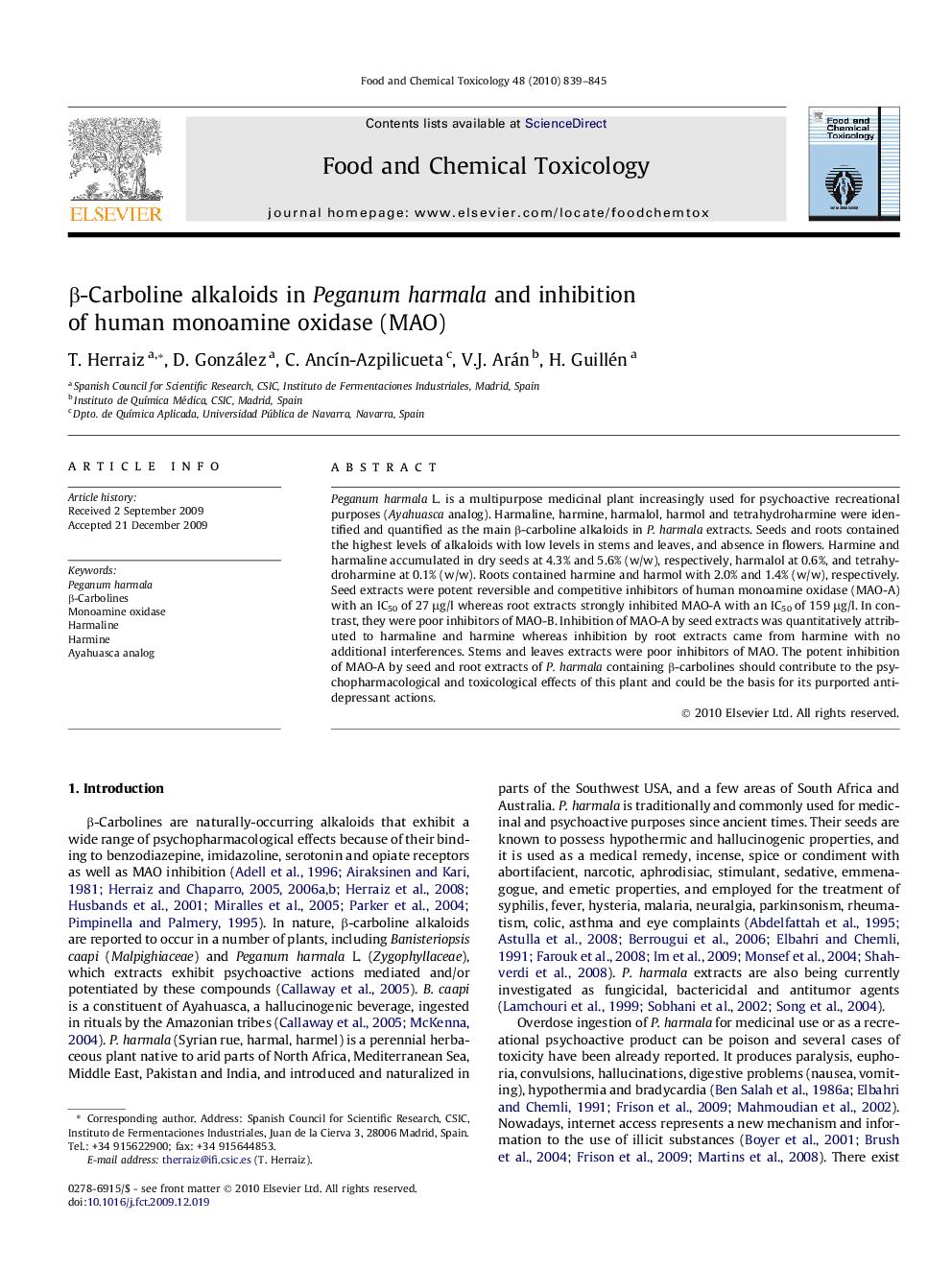| Article ID | Journal | Published Year | Pages | File Type |
|---|---|---|---|---|
| 5853972 | Food and Chemical Toxicology | 2010 | 7 Pages |
Abstract
Peganum harmala L. is a multipurpose medicinal plant increasingly used for psychoactive recreational purposes (Ayahuasca analog). Harmaline, harmine, harmalol, harmol and tetrahydroharmine were identified and quantified as the main β-carboline alkaloids in P. harmala extracts. Seeds and roots contained the highest levels of alkaloids with low levels in stems and leaves, and absence in flowers. Harmine and harmaline accumulated in dry seeds at 4.3% and 5.6% (w/w), respectively, harmalol at 0.6%, and tetrahydroharmine at 0.1% (w/w). Roots contained harmine and harmol with 2.0% and 1.4% (w/w), respectively. Seed extracts were potent reversible and competitive inhibitors of human monoamine oxidase (MAO-A) with an IC50 of 27 μg/l whereas root extracts strongly inhibited MAO-A with an IC50 of 159 μg/l. In contrast, they were poor inhibitors of MAO-B. Inhibition of MAO-A by seed extracts was quantitatively attributed to harmaline and harmine whereas inhibition by root extracts came from harmine with no additional interferences. Stems and leaves extracts were poor inhibitors of MAO. The potent inhibition of MAO-A by seed and root extracts of P. harmala containing β-carbolines should contribute to the psychopharmacological and toxicological effects of this plant and could be the basis for its purported antidepressant actions.
Related Topics
Life Sciences
Agricultural and Biological Sciences
Food Science
Authors
T. Herraiz, D. González, C. AncÃn-Azpilicueta, V.J. Arán, H. Guillén,
